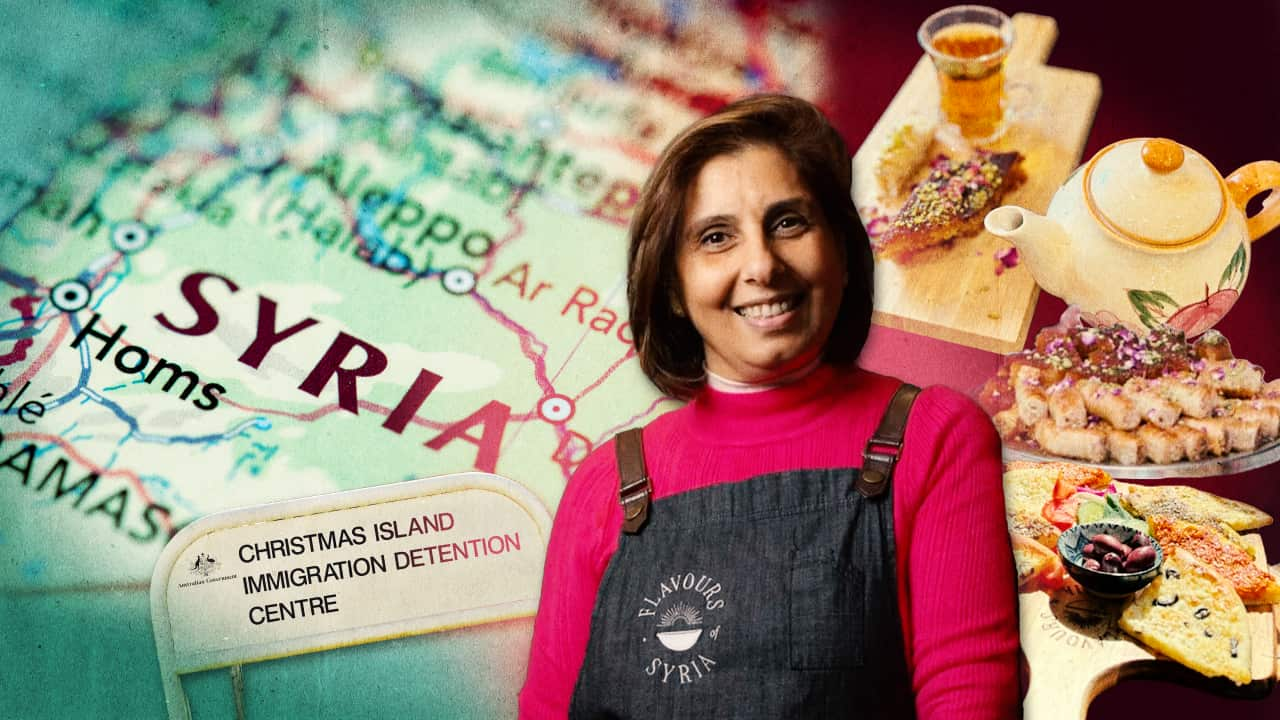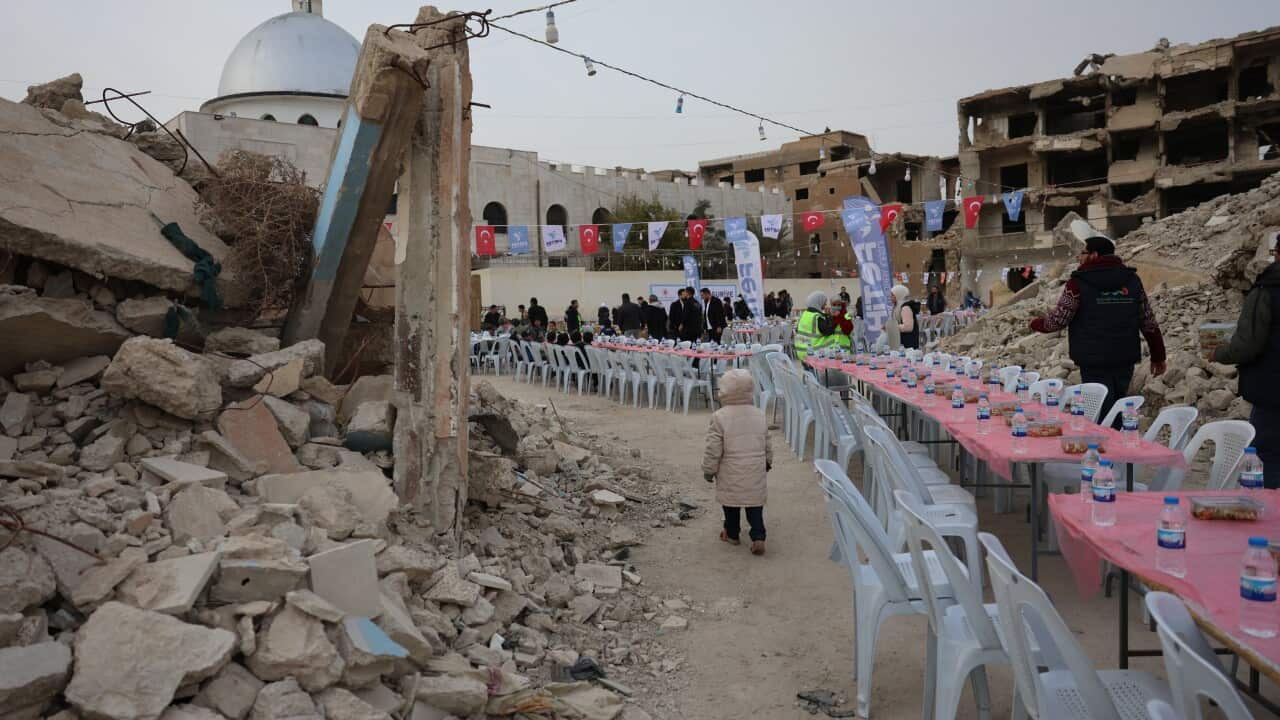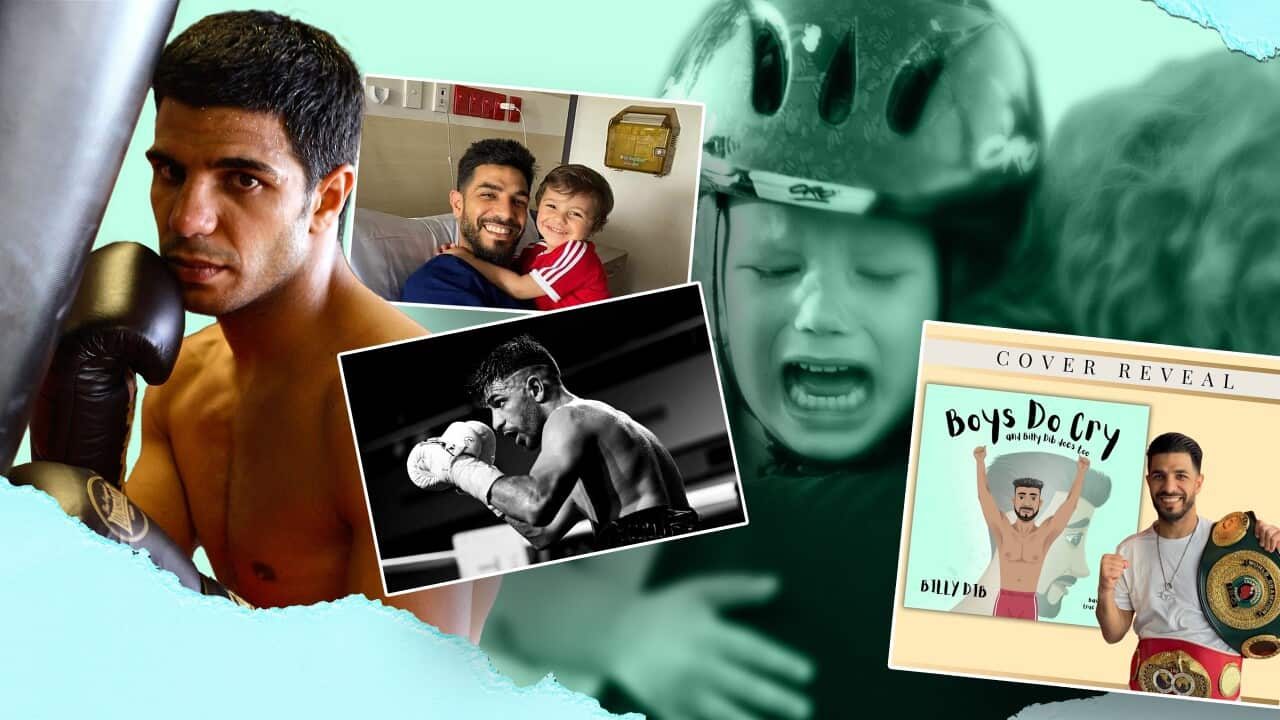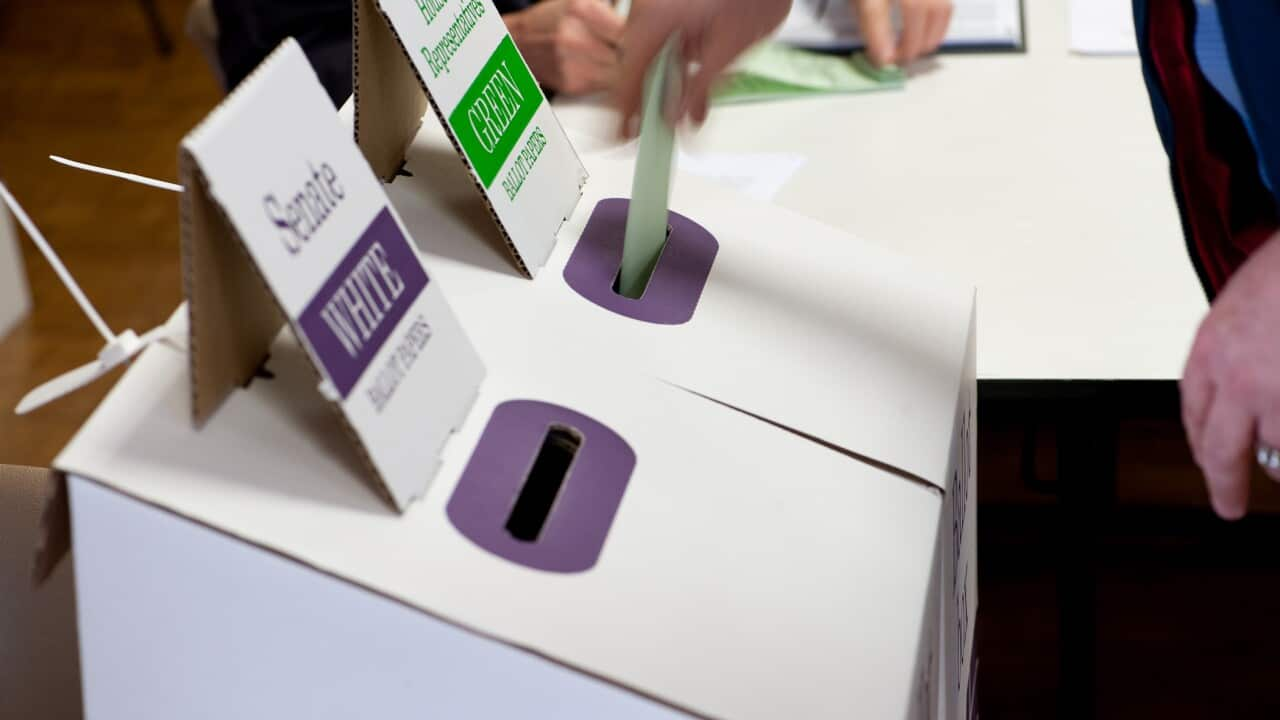Key Points
- Nayran Tabie operates two cafes in Melbourne.
- She arrived in Australia as an asylum seeker 13 years ago.
- She trains refugees and others in culinary skills at her cafes.
Flavours of Syria, situated in an alleyway in the heart of St Kilda, prides itself on the use of traditional Arabian spices and ingredients.
For owner Nayran Tabie, the cafe is "not just a business" because she can fulfil her desire to help those who arrived in Australia in a similar way she did.
Tabie arrived in Australia in 2012 as an asylum seeker fleeing the Syrian civil war which began a year earlier. As a result, she has been separated from her three sons ever since.
When she first arrived, Tabie said she began volunteering with organisations like the Salvation Army, sharing her culinary skills.
Her talents soon led her to Free to Feed, a social enterprise that empowers refugees through cooking classes.
As a cooking instructor, she found joy in "giving back" to the community which provided her with sanctuary.

Nayran Tabie says cooking was a way to support herself in Australia as well as to help others. Credit: Nayran Tabie
"It was a great way to introduce our cultures and cuisines to Australian people," she said.
"I learned there how to deal with customers and how to serve food and coffee, as well as how to run a business."
Shahkarami has since springboarded into nursing studies while waiting for her visa to be processed.
‘Frequently attacked by militants’
Tabie was born and raised in the Syrian capital city, Damascus, where she lived a "quiet life" running a cafe and thriving baklava business.
Things changed in 2011.
"We lived in the Daraya area, and our houses were close to the mountains. We were frequently attacked by ISIS," Tabie said.
"They tried to dig under our houses to reach the city. We were also frequently attacked by militants."
LISTEN TO
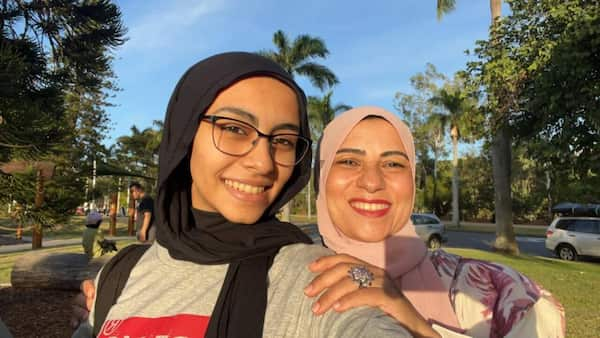
Why love is the elephant in the room to some Arab Australians
SBS Arabic
16:41
As the violence escalated, Tabie’s home and business were bombed, forcing her family of six to seek refuge in neighbouring Lebanon, before the decision was made to separate.
"We sent the boys, then aged 13, 11, and 7, with their grandmother to live in Iran until our situation stabilised a bit," she said.
"It was a difficult decision, but we decided it was best for them."
Tabie, husband Majid Rezaei and daughter Elyanoura. aged five at the time, then moved to Thailand and then to Indonesia, where they sought help from international aid agencies in Bali before obtaining legal status to settle.
"They told us it could take years to obtain any legal status as refugees," she said.
"They told us the situation in Iran and Syria was stable and tried to convince us to turn back. We only had five days to decide what to do next. ISIS was behind us and the sea was in front of us."
'There weren’t enough life jackets for everyone’
In October, 2012, the family embarked on a perilous journey from Indonesia to Australia by boat.
At sea, the trio "witnessed death several times" and waited several hours to be rescued, she said.
"The boat capsized and we almost died, but we managed to turn it around. I was carrying my daughter on my chest so she could survive and have a better life, even if I died," Tabie said.
"After we arrived at a certain point, the smugglers broke the boat so that the Australian coast guard could come and rescue us. We stayed in the water for about half a day, and the rocks hurt our legs as we tried to swim."
Despite being rescued by Australian Border Force, more than half of the passengers drowned.
"There were about 100 people on the boat, but only 38 survived. There weren't enough life jackets for everyone, and some couldn't swim," Tabie said.

Tabie ran a thriving baklava business in Syria before she and her family left the country as asylum seekers. Credit: Nayran Tabie
"When I arrived, it was like heaven to me. Some people talk about barbed wire, officers, and guns, but I didn't see any of that. I only saw heaven because they gave us shelter and food," she said.
The family spent several years in various detention centres across Australia, during which Tabie said she participated in community work by cooking and translating for other asylum seekers.
They were settled in Melbourne in 2012, and Tabie said she found herself having to rebuild her life from scratch.
Flavours of Syria: A dream come true
Tabie started a catering business at home, making Syrian food for parties and events.
In 2019, she decided to open Flavours of Syria, which became known for its traditional dishes.
She said she didn't hesitate to open the cafe in an area that has a small Arabic-speaking community, believing that "Australians love trying new foods".
She said the menu reflected her outlook on cooking.
"Some of the dishes I prepare are things my customers have never tasted before. They taste it once, then go and bring their family and friends to taste it too," she said.
LISTEN TO
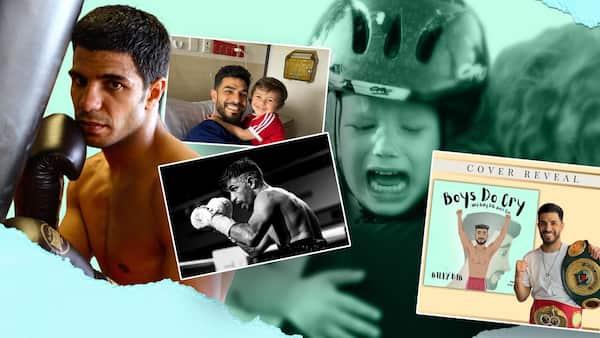
'Tears are not a sign of weakness': How a cancer-surviving boxing champ is redefining the meaning of tough
SBS Arabic
10:27
Tabie said the cafe doubled as a training space for migrants and asylum seekers, providing them with opportunities to gain experience in the hospitality industry.
In October 2024, she expanded her culinary business by opening a second cafe in Camberwell.
‘I don’t feel like a mother’
Tabie recently obtained permanent residency in Australia but she said the occasion was tinged with sadness.
"I haven't seen my boys in 14 years," she said.
"We talk on the phone and share photos, but I don't feel like a mother. We've lost our connection because of the distance all these years."
She said permanent residency "hasn't changed her situation much", affirming that only Australian citizenship could help her reunite with her sons.
"There's still a long way to go, as I can't apply to bring them over until I get Australian citizenship."
